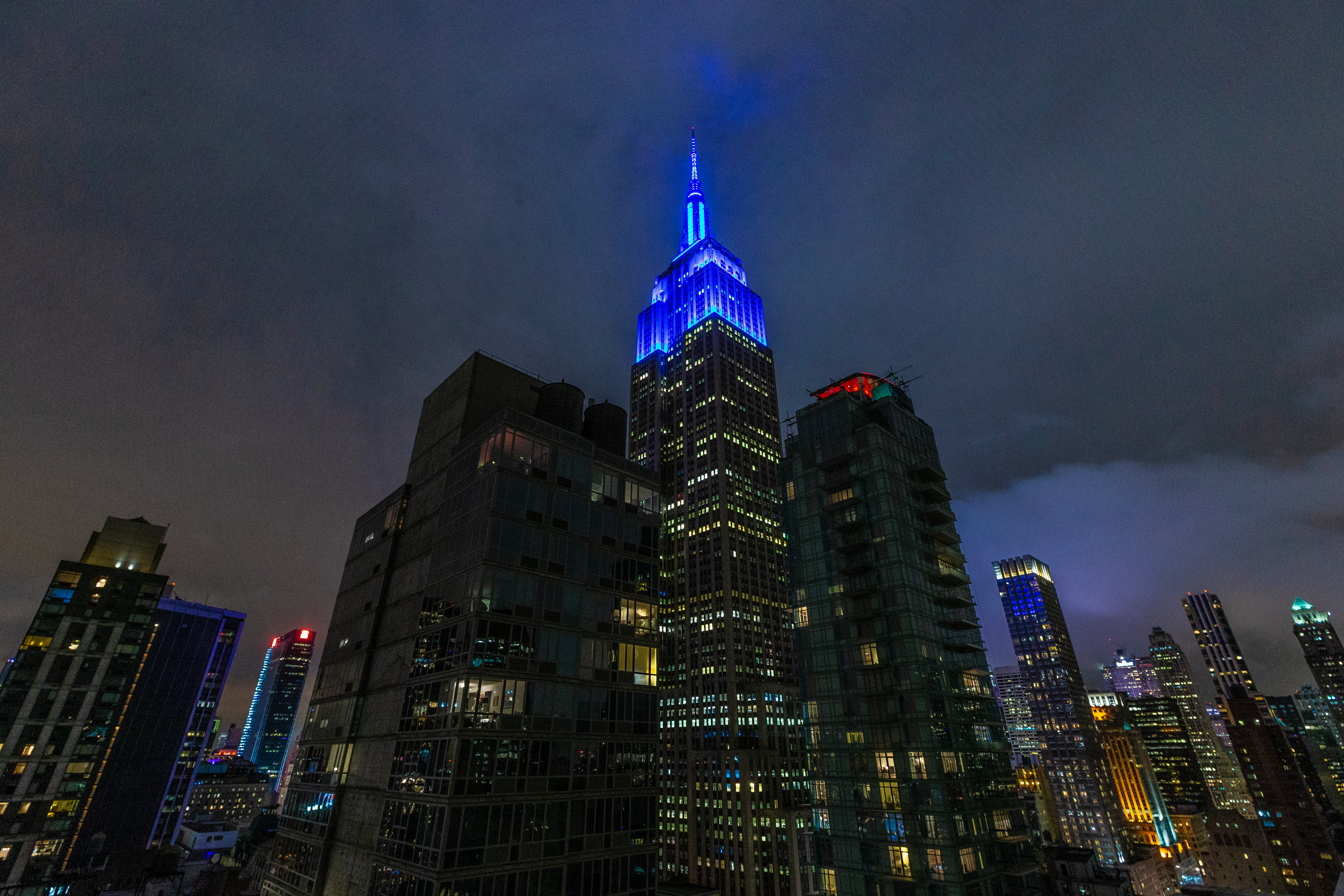 Two more first responders have died of 9/11-related cancers, officials said Friday. Retired FDNY Firefighter and Brooklyn native William Gormley, 53, died following a short battle with lung cancer Wednesday, his family said.
Two more first responders have died of 9/11-related cancers, officials said Friday. Retired FDNY Firefighter and Brooklyn native William Gormley, 53, died following a short battle with lung cancer Wednesday, his family said.
A day earlier, retired NYPD Detective William Kinane, 60, of Breezy Point, Queens, died of a 9/11-related illness.
The two deaths threatened to overwhelm the Marine Park Funeral Home — which serves both Marine Park and the Rockaways — so Gormley’s family was asked to move the service to another location, family members said.
9/11 News Archive
9/11 still killing as retired cop and firefighter die of cancers
Raymond J. Pfeifer, 9/11 Firefighter Who Sought Care for Survivors, Dies at 59
 Raymond J. Pfeifer, who spent eight months digging through the toxic debris of the collapsed World Trade Center for the remains of fellow firefighters and other victims and years lobbying, successfully, for health benefits for those who survived, died on Sunday in a hospice in Port Washington, N.Y. He was 59.
Raymond J. Pfeifer, who spent eight months digging through the toxic debris of the collapsed World Trade Center for the remains of fellow firefighters and other victims and years lobbying, successfully, for health benefits for those who survived, died on Sunday in a hospice in Port Washington, N.Y. He was 59.
The cause was complications of cancers he contracted while searching the Lower Manhattan site after the 2001 terrorist attack, his wife, Caryn, said.
“I’m being poisoned, and I’m dying, every single day, because of terrorism,” Mr. Pfeifer told WPIX-TV in 2014.
One Man’s Quest to Prove Saudi Arabia Bankrolled 9/11
When Jim Kreindler got to his midtown Manhattan office on Friday, July 15, 2016, he had a surprise waiting for him. Twice in the previous eight years, Kreindler had been in the room as then-President Barack Obama promised Kreindler’s clients he would declassify a batch of documents that had taken on near mythic importance to those seeking the full truth of who had helped plan and fund the September 11, 2001, terrorist attacks.
Now, Kreindler learned, “the 28 pages” as they were known, were open for inspection and it was up to his team to find something of value. It wasn’t long before they did—a single, vague line about a Somali charity in Southern California.
FBI Releases Archive Of New Photos From 9/11 Attack At Pentagon
 At 9:37 a.m. on Sept. 11, 2001, al Qaeda terrorists who had hijacked American Airlines Flight 77 flew it into the Pentagon, killing 184 people.
At 9:37 a.m. on Sept. 11, 2001, al Qaeda terrorists who had hijacked American Airlines Flight 77 flew it into the Pentagon, killing 184 people.
Now, more than 15 years later, documentation of the horrific incident is still trickling out. The FBI recently released a batch of 27 previously unseen photos of the aftermath, documenting everything from first responders battling flames to interior and exterior damage to the building.
Graeme MacQeen: Beyond their wildest dreams: 9/11 and the American Left
On November 23, 1963, the day after John F. Kennedy’s assassination, Fidel Castro gave a talk on Cuban radio and television.[1] He pulled together, as well as he could in the amount of time available to him, the evidence he had gathered from news media and other sources, and he reflected on this evidence.
The questions he posed were well chosen: they could serve as a template for those confronting complex acts of political violence. Were there contradictions and absurdities in the story being promoted in the U.S. media? Who benefitted from the assassination? Were intelligence agencies claiming to know more than they could legitimately know? Was there evidence of foreknowledge of the murder? What was the main ideological clash in powerful U.S. circles and how did Kennedy fit in? Was there a faction that had the capacity and willingness to carry out such an act? And so on. But beneath the questions lay a central, unspoken fact: Castro was able to imagine—as a real possibility and not as mere fantasy—that the story being promoted by the U.S. government and media was radically false.
More Articles...
- Shades Of 2000? Clinton Surpasses Trump In Popular Vote Tally
- You Only Believe the Official 9/11 Story Because You Don't Know the Official 9/11 Story
- U.S. suspicion of Saudi ties to 9/11 outlined in declassified 2002 intelligence report
- Congress releases long-awaited document on possible Saudi role in 9/11
Page 3 of 106

 9/11 News Archive
9/11 News Archive


 Warner Bros Discovery is poised to tell shareholders to reject Paramount’s $108bn (£81bn) hostile bid, according...
Warner Bros Discovery is poised to tell shareholders to reject Paramount’s $108bn (£81bn) hostile bid, according... Twenty-four years after Sept. 11, 2001, Americans remember the nearly 3,000 lives in the terror attacks...
Twenty-four years after Sept. 11, 2001, Americans remember the nearly 3,000 lives in the terror attacks...




























